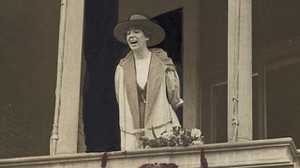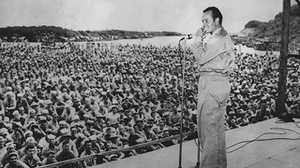Who is the Enemy?
From the Collections: The Presidents | Leadership in times of crisisSaddam Hussein
Initially resistant to the neoconservative argument to invade Iraq right away, President Bush felt himself increasingly drawn to the idea. The reasons were not only political, they were personal. "Bush developed a sense that there was unfinished business from the first Persian Gulf War in the early 1990s, that leaving Saddam in power had been a mistake,” recalled journalist Barton Gellman. “Bush was attracted to the idea of finishing something his father had left undone."
From the film: George W. Bush
The Soviet Threat
The delegations of Communist leader Mikhail Gorbachev and President Reagan met in Geneva in 1985. "The President, from the very start, started to speak in a kind of lecturing tone, as though I was a suspect, or maybe a student," says Gorbachev.
From the film: Reagan
Inflation
Jimmy Carter attempted to stop runaway inflation with a White House press conference in 1978. "Carter implored labor and business leaders to keep wages and prices down, and pressured Congress to cut back spending."
From the film: Carter
Communism
After WWII, Truman watched most of Eastern Europe fall to the Communist "Iron Curtain." "I do not think we should play compromise any longer," Truman wrote.
From the film: Truman
Imperial Japan
On December 7, 1941, the Japanese attacked Pearl Harbor. President Roosevelt was deeply shaken "knowing the navy was caught unawares."
From the film: FDR
Racial Inequality
In the only major speech of his presidential campaign, Garfield spoke to 50,000 in New York on the issue closest to his heart: the fate of ex-slaves in the South. Many Northerners felt they had sacrificed enough for African Americans but Garfield believed that every man in America, no matter his color, had a say in the government.







